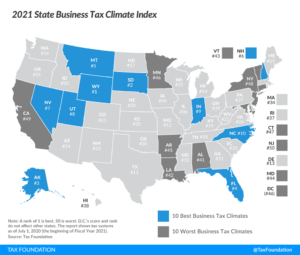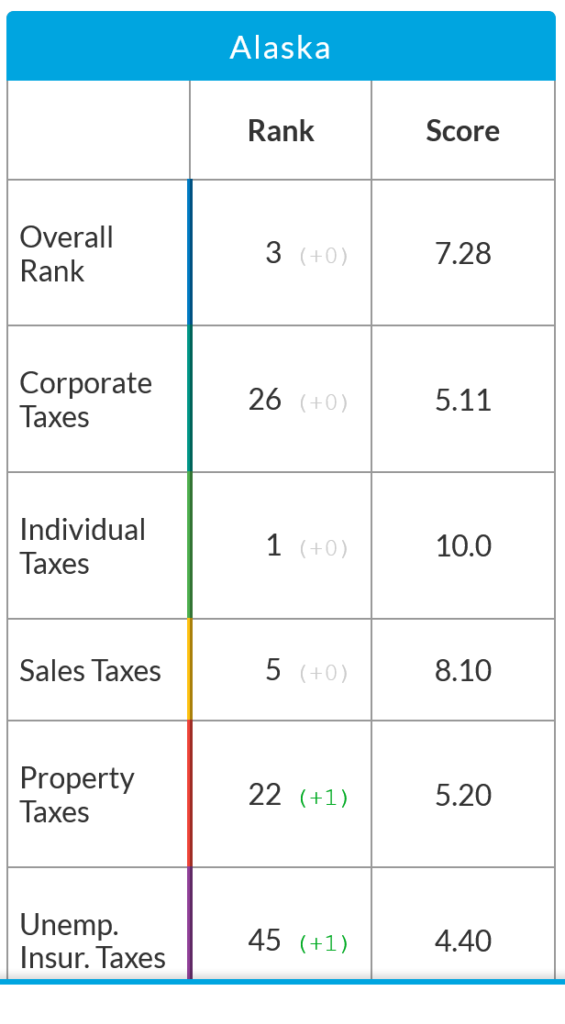 By Alex Pack
By Alex Pack
Alaska ranks in the top five for having business friendly taxes. The Tax Foundation’s 2021 State Business Tax Climate Index ranked states based on the economic impact that their respective business taxes have on private enterprise. Alaska scored third best in the overall category, behind only Wyoming and South Dakota, respectively.
The Tax Foundation has five individual categories: corporate taxes, individual taxes, sales taxes, property taxes, and unemployment insurance taxes. Scores on a 1-10 scale are made based on a state’s tax burden in relation to other states. States that do not have a system of taxation in one of the categories are automatically given a score of 10 in that category, the highest possible score.
However, when the overall ranking is given, the five categories are not equal. Their weights are as follows: individual income tax leads at 30.5%, sales tax follows at 24.4%, then corporate tax at 20.8%, property tax at 14.8%, and finally unemployment insurance tax at 9.4%. The aggregated score from these categories is compared to the average scores of all fifty states. Larger differences between states are more likely to impact business decisions. For instance, a one percent difference between states might not lead to a company moving its headquarters and factories but a ten percent difference makes a move more likely.
As the Tax Foundation explains, its yearly Index is put together “to show how well states structure their tax systems” as a way to “provide a road map for improvement.” An in-depth description of how the Index is constructed can be found in our post on it in 2020. Although Alaska’s current ranking did not shift from last year’s ranking, a deeper examination of the box score shows places where Alaska can certainly improve.

As the table above shows, Alaska’s third-place ranking is secured by a high score in the sales tax category and a perfect score in the income tax category. This is amplified by the weight given to the individual tax within the overall rankings system. As mentioned in the Index itself, “The absence of a major tax is a common factor among many of the top 10 states,” and Alaska has neither a statewide sales tax nor a statewide income tax, leading to a high score in these areas. When it comes to corporate and property taxes, however, Alaska goes from a state leading in tax freedom to a middling state because these taxes impact small businesses and business growth the most. Alaska’s dismal rank in the unemployment insurance tax category is unsurprising but reveals a vital tax policy area that needs to be examined.
Alaska’s tax ranking, and therefore the economic freedom of its citizens, is buoyed by one pivotal tax policy—a state income tax. The Tax Foundation’s Index clearly shows that Alaska’s lack of a state income tax is one of, if not the, driving factor behind Alaska’s high ranking. Although there is plenty of sound offensive policy to improve corporate, sales, property, and unemployment insurance taxes, the best way to protect the economic freedom treasured by Alaskans is through a defensive policy—opposing state income tax.
**********
The Tax Foundation is a nonprofit think tank located in Washington, DC, where its economists study federal, state, local, and international tax policy. The 2021 State Business Tax Climate Index is authored by Jared Walczak, the Tax Foundation’s Vice President of State Projects and Janelle Cammenga, a Policy Analyst.